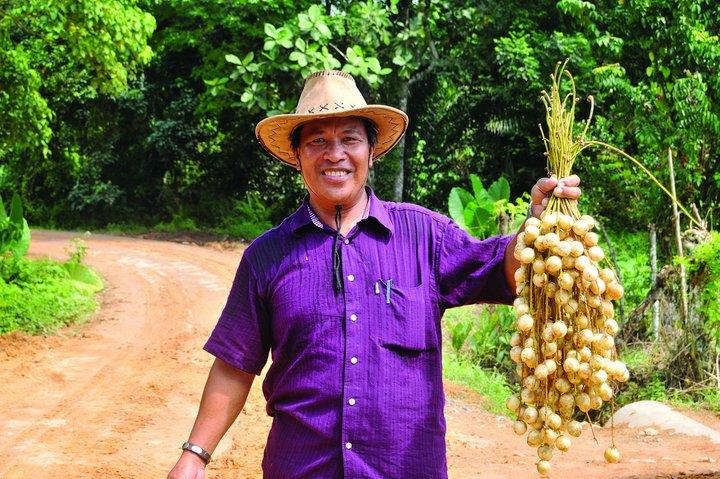Custodian farmers: The go-to people for agricultural biodiversity

Supporting custodian farmers is a big part of many of Bioversity International’s conservation and availability initiatives, both on farm and in the wild. Find out more in this Annual Report story.
Supporting custodian farmers is a big part of many of Bioversity International’s conservation and availability initiatives, both on farm and in the wild. Custodian farmers are defined as “those farmers (men and women) who actively maintain, adapt and disseminate agricultural biodiversity and related knowledge, over time and space, at farm and community levels and are recognized by community members for it”.
In 2013, three workshops were held with partners in Bolivia, India and Nepal to share this definition of custodian farmers, to bring these farmers together to share experiences and knowledge, and to discuss their roles, challenges and needs in order to strengthen on-farm conservation. Bioversity International published this definition in a publication featuring 20 custodian farmers from South and Southeast Asia.
Custodian farmers are also being supported through initiatives such as the UNEP-GEF ‘Conservation and sustainable use of cultivated and wild tropical fruit diversity’ project, which works to strengthen the capacity of farmers through community-based management.
Dattatreya Hegde, a farmer in a remote village of India’s forest-rich Karnataka state, was elected as the Custodian Farmers’ Ambassador for 2013. Having shown an interest in diversifying fruit crops since childhood, he resisted planting his family plot with the cash crop betel nut, choosing instead to invest in a fruit for which his family has a deep cultural attachment. “Since ‘appe mango’ is a delicacy in our daily meals, I have been naturally inclined to conserve more of the traditional varieties of this species,” he explains. His wife, Bharathi Hegde, produces a brand of ‘appe’ mango pickle for local markets as part of a community self-help group.
Although we strive to include more women in the list of custodian farmers, many find it difficult to leave their household responsibilities to travel to workshops. Efforts are currently under way to identify and support more custodian farmers (both men and women) in Asia and Latin America.
Supporting farmers through capacity building and improving access to agricultural biodiversity through community seedbanks and nurseries is prevalent in much of our work, including with temperate fruit trees in Central Asia and Andean grains in Latin America.
This research is part of the CGIAR Research Program on Forests, Trees and Agroforestry, the CGIAR Research Program on Policies, Institutions and Markets and the CGIAR Research Program on Agriculture, Climate Change and Food Security.
This story comes from our Annual Report 2013.
